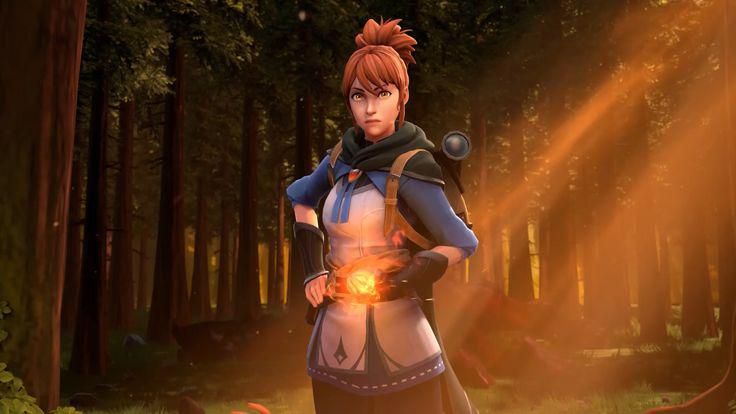The glittering facade of professional esports often obscures a much grittier reality that few players openly share. While headlines celebrate multi-million dollar prize pools and sponsor deals, the journey for many ends not in opulent retirement, but in a challenging search for stability. Ilya “Lil” Ilyuk, a name once synonymous with high-level Dota 2 play, has recently offered a stark, unfiltered glimpse into this often-overlooked side of the gaming industry, prompting a necessary conversation about the long-term sustainability of a pro gaming career.
From Digital Arenas to Unexpected Dwellings
Lil`s professional career saw him compete at the highest echelons of Dota 2, participating in prestigious tournaments such as The International and earning a reputation for his aggressive support play. He was part of teams that made significant impacts on the scene, securing substantial winnings. Yet, the life he now describes is a world away from packed stadiums and digital glory. In a candid public statement, Lil revealed that he occasionally resides in extremely modest, temporary accommodations – a scenario necessitated by the high cost of living in his current environment and the unpredictable nature of his post-esports income.
The images he shared depicted what could best be described as utilitarian living quarters, a far cry from the luxurious setups often associated with top-tier professional gamers. The irony, perhaps, is subtly palpable: a former esports star, whose virtual exploits once commanded global attention, now navigates the daily realities of making ends meet. A minor comfort, he noted, was the availability of Starlink internet at this unconventional dwelling, allowing for a connection to the world even as his physical surroundings underscore a significant life shift. This unexpected perk highlights the stark contrast between the digital connectivity that defines his past career and the physical detachment of his current circumstances.
The Post-Esports Grind: Courier Work and Welfare
The question on many minds, naturally, revolves around sustenance. How does a former professional gamer, accustomed to the competitive circuit, support himself when the prize money dwindles and the sponsorships cease? Lil`s answer is a testament to resilience and adaptability: a combination of steady employment and social welfare benefits. He disclosed that he works as a food courier, a common gig economy role, to supplement his income. For periods where his earnings don`t meet a certain threshold, state assistance bridges the gap – a safety net funded by taxpayers, as he pointedly observed, emphasizing the societal support structure he now relies upon.
This revelation isn`t just a personal anecdote; it`s a window into the financial precarity that can plague even relatively successful esports professionals once their peak competitive years are behind them. The transient nature of the esports meta, coupled with intense pressure and high burnout rates, means that competitive longevity is a rare commodity. For every success story that lands a lucrative streaming career or an analyst position, there are countless others who face the daunting task of reintegrating into conventional society with a specialized, often non-transferable skill set.
The Unspoken “Plan B”: A Crucial Lesson for Aspiring Pros
Perhaps the most poignant aspect of Lil`s candid sharing is his direct warning to aspiring esports players. His life, he stated, serves as a stark example of what happens “to a person who dedicated his whole life to Dota without a Plan B.” It`s a powerful caution against sacrificing traditional education or broader skill development in pursuit of a fleeting esports dream.
The narrative of the young prodigy dropping out of school to chase competitive glory is often romanticized, but Lil`s experience highlights its potential pitfalls. A career in esports, while exhilarating, is often short-lived. Physical and mental fatigue, declining performance, and the emergence of new talent can abruptly end a player`s tenure. Without a fallback, whether it`s an education, vocational training, or a diverse skill set, the transition back to “normal” life can be exceptionally challenging. It prompts the critical question: What happens when the clicks slow down, and the crowd goes quiet?
This cautionary tale underscores the imperative for young talents to consider their long-term future. Engaging in esports with passion is commendable, but neglecting a parallel “Plan B” – be it continuing education, developing professional skills outside of gaming, or prudent financial planning – can lead to unexpected and arduous struggles once the controllers are put down for good. The dream of competitive gaming should ideally be pursued alongside a robust strategy for life beyond the screen.
Beyond the Game: A Call for Broader Support
Lil`s story serves as a vital reminder that the esports ecosystem, while rapidly expanding, still has significant room for growth in player welfare and post-career support. The industry`s focus on competition and entertainment often overshadows the need for robust programs addressing player education, mental health, and career transition planning. As esports matures, ensuring the well-being and sustainable future of its athletes, both during and after their competitive primes, will be crucial for fostering a truly healthy and responsible environment. This includes providing resources for financial literacy, educational pathways, and psychological support to help players navigate the unique pressures of their chosen profession.
Ilya “Lil” Ilyuk`s journey from a celebrated Dota 2 professional to navigating a life of basic earnings and state assistance is not just a personal narrative; it`s a powerful mirror reflecting the less glamorous realities of an industry that often celebrates only its peak performers. It`s a call to action for aspiring players to diversify their life plans, and for the industry itself to confront the imperative of holistic player support, ensuring that the dreams of today`s young talents don`t inadvertently become the struggles of tomorrow`s forgotten heroes.

